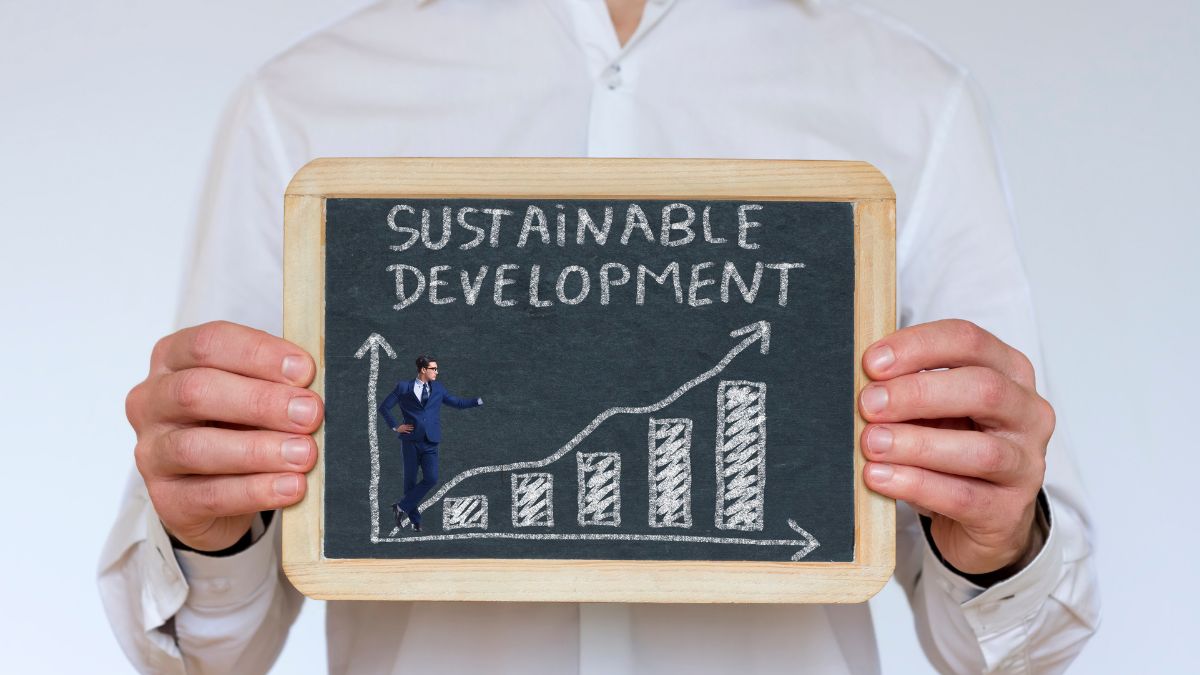As the world faces growing environmental challenges and social inequalities, the financial sector is emerging as a powerful force in advancing sustainable development. At the heart of this transformation are sustainable finance developments—financial innovations, policies, and practices that direct capital toward environmentally and socially responsible outcomes.
From green bonds and impact investing to ESG frameworks and regulatory mandates, sustainable finance developments play a key role in mobilizing resources to meet the United Nations Sustainable Development Goals (SDGs). This article explores ten impactful ways in which finance is helping to shape a more sustainable, equitable global future.
1. Mobilizing Capital for Climate Action
One of the most pressing issues of our time is climate change, and sustainable finance developments are crucial in funding mitigation and adaptation strategies. Finance enables the transition to a low-carbon economy by directing investment toward:
- Renewable energy
- Energy efficiency
- Climate-resilient infrastructure
Green bonds, sustainability-linked loans, and blended finance instruments are among the innovative tools now being used to support large-scale climate initiatives.
2. Supporting the UN Sustainable Development Goals (SDGs)
The 17 SDGs form a comprehensive blueprint for global prosperity, and financing their implementation requires trillions of dollars annually. Sustainable finance developments align financial systems with these goals by:
- Prioritizing inclusive economic growth
- Encouraging education and gender equality
- Promoting clean energy and infrastructure
Public and private financial institutions are increasingly using SDG-aligned metrics to guide portfolio allocation and impact measurement.
3. Promoting Responsible Investment Through ESG Integration
Environmental, Social, and Governance (ESG) criteria have become central to modern investment practices. Sustainable finance developments have popularized ESG integration, enabling investors to:
- Identify material risks
- Avoid harmful sectors
- Support ethical business practices
This trend encourages companies to operate more transparently and sustainably, ultimately improving corporate accountability and social outcomes.
4. Enhancing Financial Inclusion and Access
Finance is a key enabler of social equity, and sustainable finance developments are expanding financial services to underserved populations. Through mobile banking, microfinance, and social impact funds, finance is helping:
- Rural entrepreneurs
- Low-income communities
- Women-led businesses
Financial inclusion contributes to poverty reduction, job creation, and local economic development—core aspects of sustainable development.
5. Catalyzing Innovation in Green Technologies
Financing is essential for scaling innovation in clean and sustainable technologies. From carbon capture and storage (CCS) to circular economy models, sustainable finance developments provide the funding necessary to:
- De-risk early-stage green ventures
- Accelerate research and development
- Commercialize eco-friendly products
Venture capital, government incentives, and sustainability-linked investment funds are major drivers of this innovation wave.
6. Strengthening Public-Private Partnerships
Sustainable development requires cooperation across sectors. Sustainable finance developments are helping bridge the gap between public needs and private investment through:
- Public-private partnerships (PPPs)
- Development finance institutions (DFIs)
- Co-financing mechanisms
These models distribute risk, increase capital availability, and ensure that large infrastructure and social development projects are implemented at scale.
7. Encouraging Transparent and Sustainable Corporate Practices
Regulations and reporting frameworks are critical to sustainable finance. New developments in disclosure standards—such as the EU’s Sustainable Finance Disclosure Regulation (SFDR) or the Task Force on Climate-related Financial Disclosures (TCFD)—require companies to:
- Measure sustainability risks
- Disclose ESG practices
- Report on sustainability performance
This promotes a culture of corporate transparency, fostering trust among investors and stakeholders.
8. Redirecting Subsidies and Tax Incentives Toward Sustainability
Governments play a pivotal role in driving sustainable finance developments through tax reforms and fiscal incentives. Redirecting subsidies away from fossil fuels and toward renewable energy or clean transportation helps:
- Align public budgets with climate goals
- Attract private sector co-investment
- Boost the viability of green industries
Green taxonomies, carbon pricing, and sustainable procurement policies are tools used to steer financial flows toward development priorities.
9. Reducing Systemic Risks in Financial Markets
Climate change, biodiversity loss, and inequality pose significant systemic risks to the global financial system. Sustainable finance developments contribute to risk reduction by:
- Stress testing portfolios for ESG risks
- Integrating sustainability into credit ratings
- Mandating climate risk disclosures
By internalizing long-term environmental and social risks, financial systems can become more resilient and adaptive to future shocks.
10. Empowering Local and Grassroots Development Initiatives
Sustainable development is most effective when it starts at the grassroots level. Sustainable finance developments empower local communities through:
- Community investment funds
- Social impact bonds
- Place-based investing
These tools enable locally led projects in healthcare, education, housing, and renewable energy, ensuring development is inclusive and community-driven.
Conclusion: The Transformative Power of Sustainable Finance Developments
From climate change to inequality, the world’s most pressing challenges require massive financial commitment and innovation. Sustainable finance developments offer a pathway to mobilize capital responsibly, align investment with global development goals, and ensure that economic growth doesn’t come at the cost of the planet or its people.
As finance continues to evolve, the focus must shift from short-term gains to long-term sustainable outcomes. Whether you’re a policymaker, investor, business leader, or civil society advocate, supporting and scaling sustainable finance developments is essential for building a resilient, inclusive, and sustainable future.
Key Takeaways
- Sustainable finance developments are essential for funding climate, social, and economic solutions.
- ESG integration and SDG alignment are now central to modern finance.
- Financial inclusion, innovation, and transparency are pillars of sustainable financial systems.
- Public-private collaboration and grassroots investment drive local and global impact.


